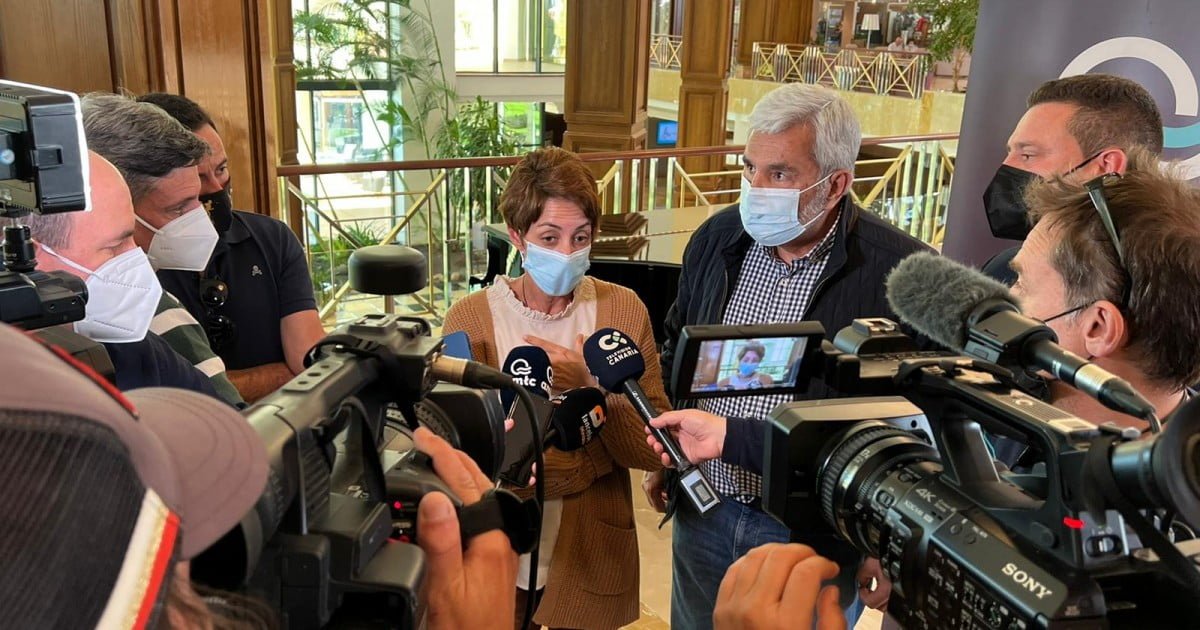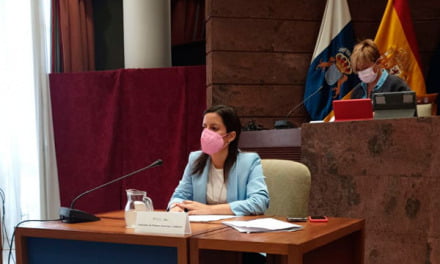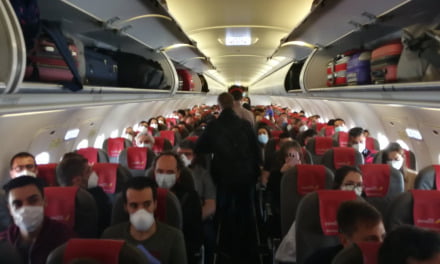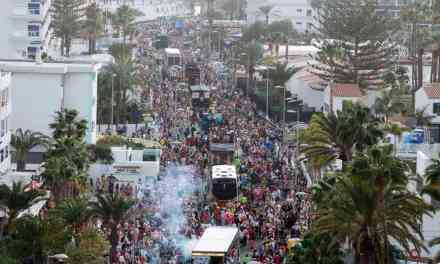La Alcaldesa, the still-serving Mogán mayor, currently presiding over Gran Canaria’s southwestern town hall, has been under investigation for years, for one thing or another, and arrested at least twice while working for the good people of Mogán, though currently she and her alleged co-conspirators do appear rather bullish, having once more escaped prosecution, this time on a technicality, following multiple allegations of electoral fraud, and other crimes, stemming from the Mogán local elections of 2015 and 2019. The events that took place both before and during the 2015 ballot were “prescribed”, meaning that too much time (more than 5 years) had passed to allow for prosecution under Spanish law (a time limit based on half the maximum penalty for the crime), while the investigation into the events surrounding the 2019 local elections, was provisionally dismissed, shelved for the moment, due to insufficient evidence of a crime. By no means a win, but enough to motivate a desire to try to wipe away the damage caused, as she lines herself up to stand again in 2023, this time perhaps under an alternative political banner.
Based on the continuing investigative work of Ivan Suarez, writing for CanariasAhora
Image courtesy of Mogán Town Hall, Supplemental reporting, Timon .:.
Several judicial investigations into the mayor’s activities, and other members of her team, however, continue. At a press conference, a couple of weeks back, on March 25, just one week after the case was provisionally dismissed, La Alcaldesa, Onalia Bueno, (whose party call themselves Citizens for Change – CIUCA) expressed her desire to dissipate the “black cloud” that, she said, has settled over her since she has been a politician. However, the incumbent Mogán mayoress continues, at least for the time being, to be under scrutiny. Court of Instruction 3, in San Bartolomé de Tirajana, last week presented four different lines of enquiry to the court administration offices. Each had been separated, from this wide-ranging electoral fraud investigation, to be studied independently, based on evidence gathered by the Guardia Civil, following on from their scrutiny of the suspected plot, having presented the facts uncovered after CIUCA had gained control of the town hall administration.
These four lines of inquiry respond to the four reports, issued by judicial police, which appear to implicate La Alcaldesa and which, in the opinion of investigators, may constitute various crimes (prevarication, embezzlement, bribery, illegal appointments, influence peddling, disobedience to judicial authority and infidelity in the custody of documents).
The investigating judge, Francisco Javier Ramírez de Verger, decided to break down the legal case, so as to speed up proceedings and avoid delays. “These are not related crimes, although they may be tangentially related to the investigation,” he stated in a judgement dated July 28, last year. That resolution was appealed by one of the defendants, businessman Luis Oller (Aguas de Arguineguín), whom the judicial police point to as the likely financier of the alleged vote-buying plot, and beneficiary of a mediation process that was allegedly rigged by the town council led by Bueno and her crew.
The appeal was, however, dismissed, and division of the procedures was confirmed. Last week, a Justice Administration lawyer issued official documents which have now been submitted to the offices of the San Bartolomé de Tirajana courts, which must now distribute the four cases among the various investigating courts of the judicial district, according to established norms.
One important line of investigation focuses specifically on Luis Oller, president of one of the companies that operate the main water supply service for the Mogán area (a company noted for its repeated failure to supply water safe enough for human or animal consumption, or even for cooking or brushing one’s teeth with, over recent months and years). The Guardia Civil identified Oller as the presumed financier of the alleged conspiracy which swept Bueno to power, after several cheques, drawn in his name, were discovered to have been cashed in the days running up to the 2015 Mogán Town Council elections, namely by CIUCA official Salvador Álvarez, one of Bueno’s closest collaborators in that campaign. The investigators expose, in one of their reports, Álvarez’s repeated “obstinacy” in favouring Oller “in all municipal areas” and focus their suspicions on a mediation process, ostensibly to resolve a dispute that the businessman had had with the municipal corporation for several years. That process appeared to the investigators to have been rigged, leading to two of the lawyers advising, who’d expressed their reluctance to accept the proposed agreement, even having been removed from the procedure to pay Oller public money, thought to be in return for alleged favours to and by CIUCA during the 2015 election campaign.
Another of the investigations focuses on the appointments of eight public employees to the Mogán Town Council, and then increases in their specific remunerations. According to the Guardia Civil, the mayoress allegedly granted jobs and bonuses to these public servants, some of whom are directly related to the mayor, and who likely collaborated in that same campaign for Ciuca as “vote catchers”. Some bonuses were subsequently judged in court to be “arbitrary and lacking in legitimacy” and were ordered annulled. Among the testimonies sent by Court of Instruction number 3, in San Bartolomé de Tirajana, to the offices of the court, is a statement made before the judge by one Francisco Javier Bueno, the mayor’s own cousin and a beneficiary of these improper salary increases on two occasions, as he himself acknowledged in that appearance. In a letter, explaining her abstention from the vote to allow the pay increases, due to the presence of her relative, the mayor took the opportunity to also state that this bonus was “more than deserved”.
Judicial police have also detected signs of embezzlement and prevarication in several contracts awarded to the mayor’s current Urban Planning advisor, Raico Guerra, and his family’s company, Arpiplan, between 2015 and 2020 worth a total of €276,000 in public funds. In one of the monographic reports that have led to the opening of this case, investigators detected a “manifest intention” by the Ciuca government, to financially benefit Guerra and his entourage, who then became the sole contractors to the Town Council overseeing veterinary services during that time. The Guardia Civil has also emphasised that he was appointed urban advisor to the Council despite his “limited” technical knowledge (having only a Basic General Education) and that, two days before his appointment, the Consistory had signed a contract for External advice on urban matters with one Jesús Romera Espeja, an architect and urban planner who has held various positions under the Canarian Coalition (CC), to whom Bueno has been allying herself, among them that of Deputy Minister of Territorial Policy under Fernando Clavijo when the CC was in power, as part of the Canary Islands Regional Government.
The last line of investigation concerns events that took place in the period immediately following the arrest of Mayor Onalia Bueno, alongside her councillors Mencey Navarro (Urban Planning and First Deputy Mayor) and Tania del Pino Alonso (Councillor for Social Services), on September 17, 2020. One day earlier, the judge had authorised Guardia Civil to enter, the Mogán municipal town hall offices, in Arguineguín and Pueblo de Mogán, for the search and seizure of documents and computer files, as a result of the investigations being carried out by judicial police, on suspicion of the existence of “objective, accessible and verifiable” evidence that could corroborate the participation of members of the local corporation in actions presumed to constitute an electoral crime against the public administration, a crime against the people of Mogán.
After investigators gained access, to monitor the town hall computer systems, the mayor and the first deputy mayor subsequently ordered their head of the IT service to disconnect the investigators from the systems. This was contrary to the legal permits and court orders that had been given to the Guardia Civil during the operation, which allowed them to access, search and monitor the digital files stored there. That instruction from La Alcaldesa, is evidenced in WhastApp messages and would later be reversed by Navarro, and is the focus of a separate investigation into the administration for an alleged crime against the justice department.
Appeal against the order to provisionally dismiss the 2019 electoral fraud investigation
The order to dismiss the 2019 electoral crimes case has been appealed by one of the ten or so defendants charged and under investigation, José Monzón. He is known locally in the municipality as Pepe ‘el japonés’, and was charged, along with various others, as a result of a recording in which he can be heard telling the conservative Partido Popular (PP) ex-mayor of Mogán, Paco González, that during the 2015 electoral campaign he, El Japonés, had collaborated with CIUCA to gather 383 votes, in exchange of money and favours. “We have to play dirty,” he said in that conversation with Bueno’s predecessor, after explaining in detail the mechanics used to buy the votes that helped swing the election in her favour. González too has faced accusations of vote-buying in the past, but never on this scale.
Monzón’s defence lawyers appealed the judicial decision to dismiss the alleged 2019 electoral crimes, because, in their opinion, the dismissal should have been definitive and not just provisional. In other words, they insist that there should no longer be any possibility of reopening the 2019 case, considering it the same as the alleged 2015 crimes, which are now prescribed and can no longer be pursued. The Prosecutor’s Office continues to oppose the appeal. A shadow remains over Mogán.














